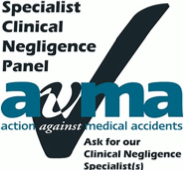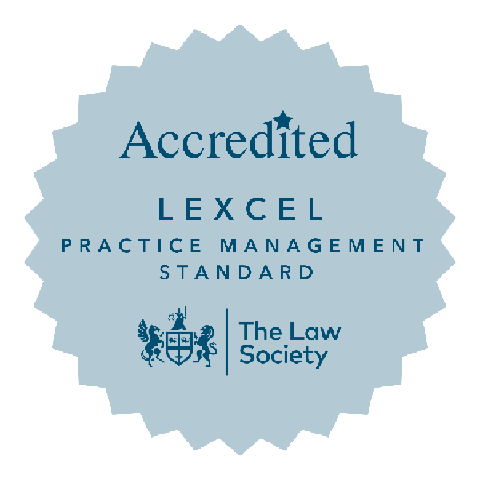- Home >
- Birth Injury Claims >
- Neonatal Death Claims
Losing a child within their first 28 days is an indescribable tragedy that no parent should ever have to experience. This pain is made even greater if you suspect preventable medical mistakes led to your newborn's death.
If your family has had to endure this heartache, our sensitive solicitors are here to support you every step of the way. While no amount of compensation can undo what happened, with over 30 years of birth injury experience by our side, we can secure the justice you need to move on from this difficult chapter.

Do you have a neonatal death claim?
Despite advancements in obstetrics, 1 in every 370 births ends in a neonatal death. In many cases, these tragedies cannot be prevented. However, in rare incidents, the actions or inactions of healthcare professionals can contribute to the wrongful death of a baby.
If your child’s death was due to poor pre or postnatal care, you have a right to justice. Our solicitors can help you secure a settlement that covers funeral expenses, psychological support and more. We also work to understand what happened, so similar mistakes can never happen again.

The specialist neonatal claims solicitors for Essex & East Anglia
When you’re living with parental grief, a medical negligence claim can feel daunting. We understand the emotions involved in these delicate cases, and work to make this process as manageable for you as possible.
Solely focusing on clinical negligence since 1993, our neonatal claims solicitors have the experience to achieve a fair outcome for you and your family. Working on a strict ‘no win, no fee’ basis, we investigate all evidence and consult independent medical experts to build the strongest possible case – an approach that means we resolve 96% of claims out of court.
What does our neonatal death claim process look like?

A free initial consultation
Call us, request a callback or complete our online form and we’ll assess if you have a valid medical negligence claim.

Funding your claim
Discover the ways we can fund your claim without you paying a penny at any stage of the process.

Investigating evidence
We gather medical records, witness statements and more to learn what happened to you and prove your claim.

Instructing independent medical experts
We work with impartial, experienced medical experts to establish whether your injuries were due to substandard medical care.

Valuing your claim
We assess your health and financial losses to accurately estimate how much compensation your claim is worth.

Presenting your case
We contact the Defendants and the Courts on your behalf to set out your allegations and receive a response.

Negotiating a settlement
We work to achieve a fair settlement for you outside the courtroom – this is how 96% of our cases end.

Preparing for Trial
If we must proceed to Trial, we fully prepare you for what to expect so you receive the right result in court.
FAQs about neonatal death claims
What is a neonatal death negligence claim?
If a baby sadly dies within 28 days of birth, it is classified as a neonatal death. While a large number of these outcomes cannot be prevented by medical care, a small percentage are the unfortunate result of obstetric negligence.
In these rare instances, when a healthcare professional breaches their duty of care to a newborn, the parents affected can seek compensation from those responsible. This can cover any financial losses due to time away from work, pay for ongoing psychological support and more.
To navigate these complex cases and reach the right outcome, a neonatal death compensation claim involves gathering evidence to prove that the medical care you and your child received fell below reasonable standards, and was directly responsible for their death.
These medical negligence cases are also an opportunity for families to understand what happened, helping them find closure and stop other families from experiencing the same fate.
What can cause neonatal deaths?
Recent studies into neonatal deaths have revealed some of the leading causes and risk factors for these unfortunate incidents. Some of the most common include:
Premature birth
If a baby is born before reaching 37 weeks, it can increase the risk of neonatal or perinatal death due to complications, such as:
- Respiratory distress syndrome (RDS)
- Intraventricular haemorrhage (IVH)
- Necrotizing enterocolitis (NEC)
Low birth weight
Low birth weights for babies have been strongly linked to neonatal deaths and infant mortality.
Genetic disorders or birth defects
If a baby is born with a defect of the heart, brain or lungs, or receives a genetic disorder from the parents, this can lead to their death at an extremely young age.
In many cases, these instances cannot be prevented or addressed with medical attention. However, the professionals who provide the mother’s antenatal care should regularly monitor the baby to identify any birth defects that could affect the child’s development or chances of survival.
Birth injuries or complications
Complications or injuries that occur during birth can lead to the death of a baby in its first four weeks of life, or leave them with conditions that will require lifelong care and treatment. This may include:
- Brain injuries, often as a result of oxygen starvation or physical trauma to the head during birth
- Meconium aspiration syndrome, where the stress of birth causes the baby to breathe meconium
- Umbilical cord prolapse, which can restrain the baby’s body during delivery
- Placental abruption, where the placenta separates from the uterus earlier than intended
In most circumstances, these injuries are unavoidable despite the best efforts of doctors, midwives and other healthcare professionals. However, they can sometimes occur due to clinical negligence, whether from inadequate monitoring during antenatal care or inappropriate actions taken during delivery.
Infections
If a bacterial infection is not identified or treated in the mother, this can pass into the womb, infect the baby, and lead to neonatal death. The most common infections include:
- Strep B
- E. coli
- Klebsiella
- Enterococcus
- Haemophilus influenza
- Chlamydia
- Mycoplasma/ureaplasma
The health of the mother
Characteristics and factors which affect the mother’s health and wellbeing can also increase the likelihood of a neonatal death occurring. Such factors may include:
- The age of the mother (births by mothers under 20 and over 40 have higher neonatal death rates)
- Maternal obesity
- Chronic health conditions
- Smoking during pregnancy
- Substance abuse
Negligent antenatal or neonatal care
Although it is rare, if medical professionals looking after mother and baby are negligent, this can directly influence the likelihood of neonatal deaths.
This can also include circumstances where a baby is born in poor condition despite the best efforts of medical professionals, but then receives substandard neonatal care that sadly leads to its death.
What is the difference between a neonatal death and a stillbirth?
Although neonatal deaths and stillbirths can result from similar causes and, in rare instances, negligence during antenatal care – the main difference is when these incidents occur.
A neonatal death is when a baby dies within 28 days of delivery. A stillbirth occurs beforehand, in the time between a mother’s 24th week of pregnancy and birth.
Can I make a claim if my newborn died due to medical negligence?
If you believe that your newborn's death was the result of negligent birth injuries or subpar postnatal care, you may be entitled to claim compensation, justice and answers.
Our specialists will investigate your case on your behalf to establish if there was any breach in the medical professional’s duty of care, and if this led to the avoidable death of your infant.
How do you prove that medical negligence caused a neonatal death?
To prove whether you have a valid neonatal death compensation claim, we must establish that medical malpractice was responsible for the unfortunate passing of your child. This is based on three important questions:
- Did a healthcare professional breach their duty of care towards the baby?
- Did the infant suffer harm?
- Was this harm a direct result of the healthcare professional’s breach of duty?
For your claim to be considered, it must meet all three criteria. If it does not satisfy one or more of the above questions, then you do not have grounds for a claim.
As specialist birth injury claims solicitors, we will thoroughly assess all available evidence and consult independent medical professionals to establish whether your child’s passing was the result of negligence. We will also:
- Arrange a free initial consultation to discuss your situation
- Set you up with a dedicated solicitor who will personally oversee your case
- Contact the Defendant, assess their response and advise on your next steps
- Negotiate with the Defendant to reach a fair settlement
- Prepare you for your court hearing should your case proceed to trial
To find out if you can make a claim, answer a few short questions on our dedicated “Do I have a claim?” form.
How long do I have to file a neonatal death negligence claim?
In most cases, you will have three years to pursue a neonatal death claim. This time limit begins from the date of your baby’s death.
In some circumstances, the courts will allow claims outside this time. We can advise you on whether your claim is likely to be considered.
Contact our expert neonatal death claims solicitors
If your family lost a child in the month after birth, and you believe negligence was responsible, our team is here to listen and advise you on your next steps.

Lexcel accredited medical negligence claims solicitors
We are proud to be a Lexcel-accredited practice. The accreditation is a mark of quality and comes directly from the Law Society.
A recent assessment described us as a “Centre of Excellence” and we continue to operate to the highest standards across all main areas of our field. These include client care, case management, financial management, structure and strategy, people management, risk management, information management and file management.




Industry Recognised

